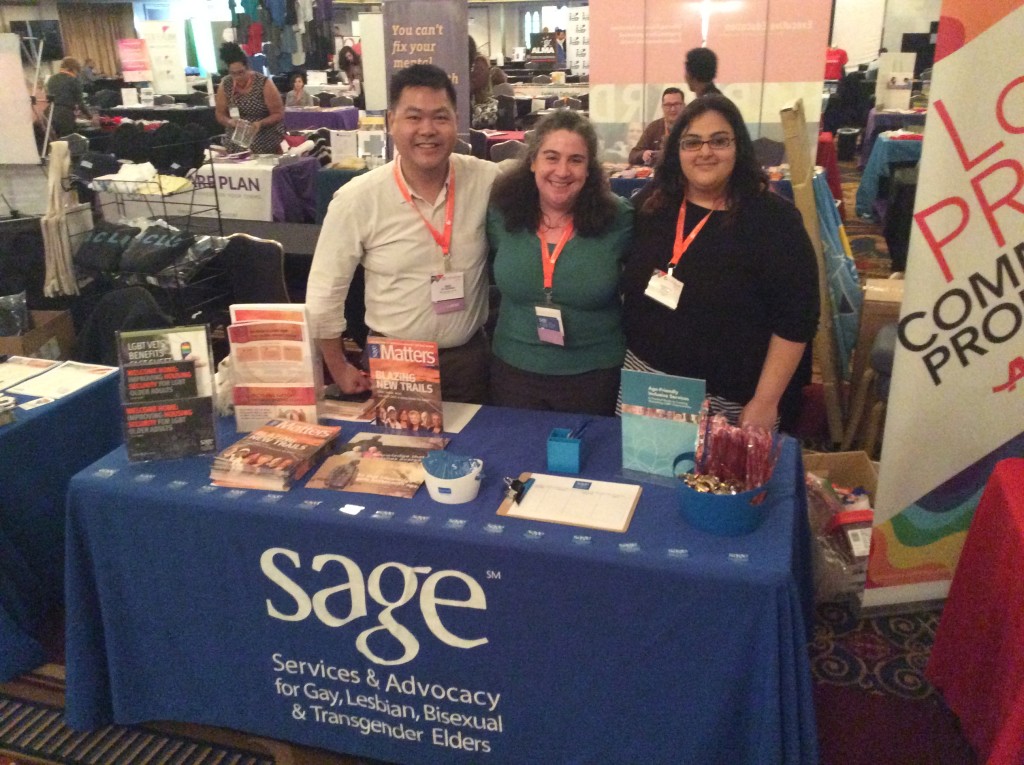As a conference that brings together thousands of social justice-minded LGBT people and organizations from around the country, Creating Change has been an important space for me for more than a decade. I’m proud to have played a small role in some of their ground-breaking programming, such as the first ever Asian American and Pacific Islander (AAPI) day-long institute (which helped grease the wheel for our colleagues in Latino and African American communities to follow suit), and the first ever official Creating Change observance of Lunar New Year. The National LGBTQ Task Force brought this year’s conference to Chicago this past weekend and, as usual, created an important space for the LGBTQ communities.
The moment one claims to be “the first” to do something, someone else invariably finds their way to the conversation to point out a correction from the historical record, but I think the length and depth of programming the Diverse Elders Coalition and its member groups did at this year’s Creating Change specifically centered around LGBT elders of color is the first of its kind. Our session, “Rage Against the Dying of the Light: LGBT Aging from Diverse Perspectives,” brought together leaders from African American and South Asian American communities, with policy, direct service, and caregiving lenses. Additionally, we hosted the first of its kind LGBT Elders of Color Caucus, a specific space set aside for LGBTQ people of color to talk amongst themselves about the intersections of race, sexuality, and gender identity from an elder perspective.

We built this space in the context of the more fractious discussions that happened at Creating Change, many of which are still being dissected. The caucuses of people of color had particularly pointed conversations around controversial topics such as anti-Blackness, colorism, and the role of transgender people in our communities. The conference as a whole confronted difficult issues such as how to bring the voices of LGBTQ immigrants most directly affected by harsh immigration detention policies to the Immigration and Customs Enforcement (ICE), when they are the people most threatened by the very presence of deportation authorities at the conference. The contentious geopolitical conflict between Israel and Palestine, which certainly is not going to be solved in a four-day conference in Chicago, nevertheless manifested itself through conflict and protests from different organizations representing various Israeli and Palestinian LGBTQ constituencies and their supporters. To boil the debate and the actions there down to a reasonable space here would do injustice to the very real issues at stake and would not be fair to my dear friends and colleagues who have made very real sacrifices through their work on these issues and feel its consequences in ways I cannot begin to imagine.
But what I will say here is that as my work to support those whom I live in my political and movement home continues beyond the written words here, I am reminded by, comforted by, and inspired to keep moving forward by the words of Katherine Acey, the recipient of the SAGE Advocacy Award for Excellence in Leadership on Aging Issues. Having been the beneficiary of her decades of work in LGBT communities and with people of color, and having been a colleague through Astraea’s Movement Building Grant, I would not be here in many ways but for her tireless advocacy. She closed her acceptance speech with these words: “Revolution is all about love, it’s all about forgiveness.” The perseverance she and the LGBT elders and elders of color I worked with at Creating Change remind me that the work we do to address and resolve the very real conflicts within and outside our movements must take the long view and rely on the passion and compassion that all our generations can muster.
Note: Many thanks to the presenters for the DEC workshop and caucus, including: Vega Subramaniam of Vega Mala Consulting, Maria Glover-Wallace of Affinity Community Services, and Aaron Tax and Tim Johnston of SAGE. Particular thanks to Tim for stepping in at the last minute to support Serena Worthington from SAGE– the role of understudy is underappreciated.
The opinions expressed in this article are those of the author and do not necessarily reflect those of the Diverse Elders Coalition.

